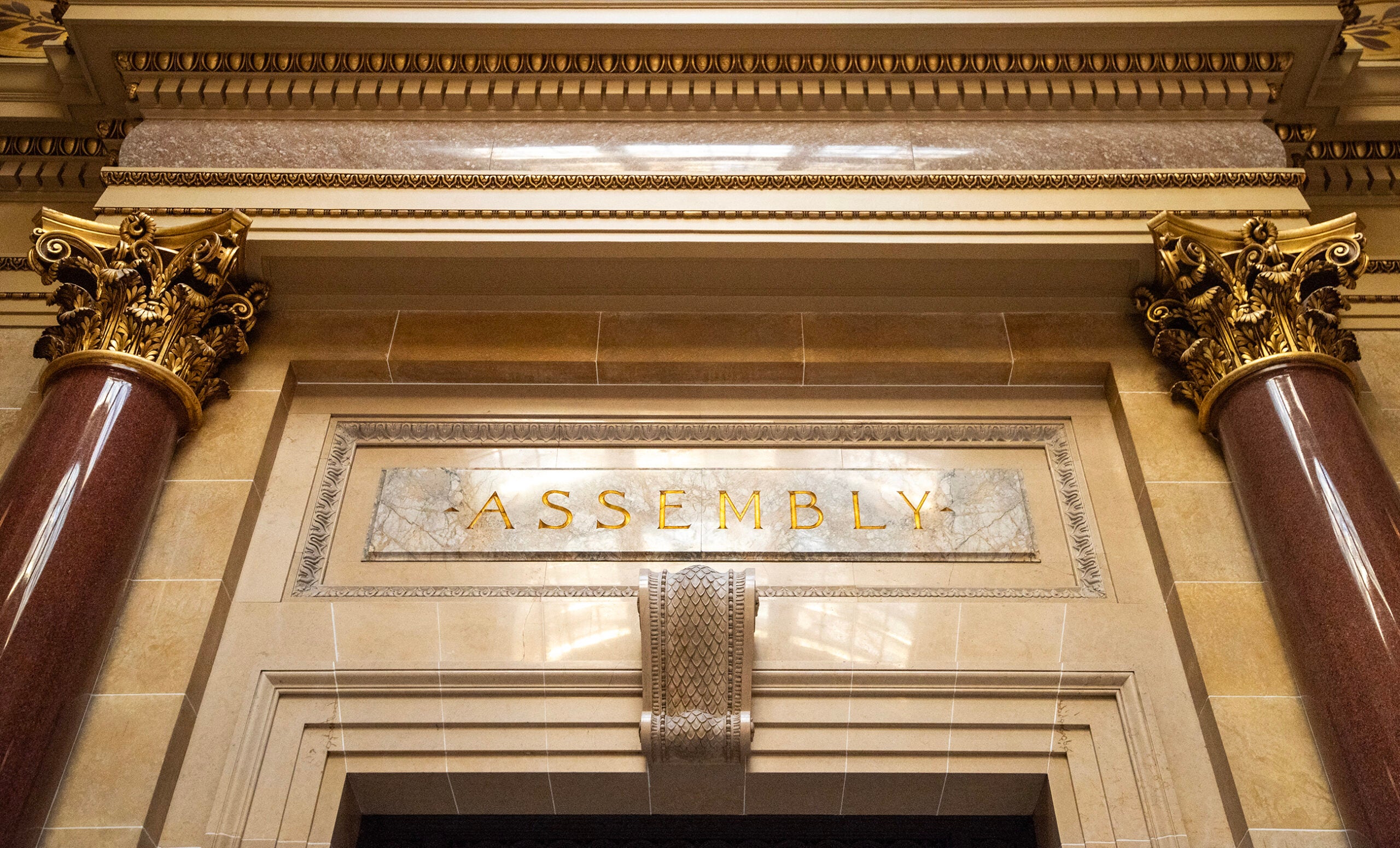Wisconsinites’ access to unemployment benefits, Medicaid and other government safety net programs would be restricted under a package of Republican-backed bills that passed the Assembly on Thursday.
Republican legislators argue the measures will encourage people to rejoin the workforce at a time when businesses need them, but Democrats say they’re insulting to working families and ignore the root causes of unemployment.
The bills will likely be vetoed by Democratic Gov. Tony Evers.
News with a little more humanity
WPR’s “Wisconsin Today” newsletter keeps you connected to the state you love without feeling overwhelmed. No paywall. No agenda. No corporate filter.
Among the biggest proposed changes is one that could cut months off someone’s unemployment benefits depending on the state of the economy. Normally, someone who loses their job can receive up to 26 weeks of unemployment in Wisconsin. Under the plan by state Rep. Alex Dallman, R-Green Lake, the number of weeks of unemployment benefits would go down when the unemployment rate is low, like it is now.
So, for example, when unemployment is above 9 percent, the state would still offer 26 weeks of unemployment. When the unemployment rate is 6 percent, benefits would be capped at 19 weeks. And when unemployment is under 3.5 percent, like it is now, benefits would be reduced to 14 weeks.
“In the economic climate we have right now, there’s no reason that someone should need a half a year to find a good, high-quality paying job as they’re around every corner,” Dallman said.
State Rep. Kristina Shelton, D-Green Bay, said the Republican legislation didn’t solve any problems and nobody was asking for them.
“In fact, what these bills in front of us do is they highlight a doubling down on an extreme right-wing commitment to a legislative agenda that is anti-worker, anti-Wisconsin and anti-family,” Shelton said.
Wisconsin’s unemployment rate dropped to 2.8 percent in December, a record low.
Other bills passed by Republicans Thursday include:
- A proposal that would cut off Medicaid, or BadgerCare, to adults without kids if they turn down an offer to work more, or turn down an increase in pay. Some BadgerCare recipients are reluctant to increase their hours out of fear they’ll lose their current health plan and be unable to afford similar health insurance on the private market. The plan would not apply to caregivers for dependents who are elderly or disabled.
- A measure that would ban the state Department of Health Services from automatically renewing eligibility for medical assistance benefits.
- A plan requiring able-bodied adults without children who are seeking FoodShare benefits to search for work and get tested for drugs.
- New penalties for unemployment insurance recipients who “ghost” employers, or don’t show up to a scheduled job interview.
- Proposals that would rebrand Wisconsin’s unemployment insurance program as “reemployment assistance” and create new penalties for unemployment insurance fraud.
- New grant programs that would spend $10 million on “talent attraction and retention” for veterans and $20 million for youth apprenticeship programs. Both proposals would tap into federal coronavirus relief funds, which are otherwise under the sole discretion of Evers.
GOP lawmakers also passed a measure that would limit a governor’s powers to close businesses during an emergency like the COVID-19 pandemic.
The plan would not prevent governors from closing businesses, but all businesses would have to be treated equally under the bill. Businesses could no longer be labeled “essential” and remain open while others are closed.
“I hope we can get this bill passed so we can never, ever have to go out and explain to people why they can’t be open,” said Rep. James Eedming, R-Glen Flora.
During the early months of the pandemic, the Evers administration declared a public health emergency and issued orders closing some businesses but leaving many others open.
After Rep. Scott Allen, R-Waukesha, compared the governor’s actions to a doctor shooting a patient then treating the wound, it drew a sharp rebuke from Rep. Robyn Vining, D-Waukesha, who told Republicans they shouldn’t refer to gun violence to make their points.
“Words matter,” Vining said.
The workforce plans that passed the Assembly Thursday have yet to pass the state Senate.
Wisconsin Public Radio, © Copyright 2025, Board of Regents of the University of Wisconsin System and Wisconsin Educational Communications Board.







